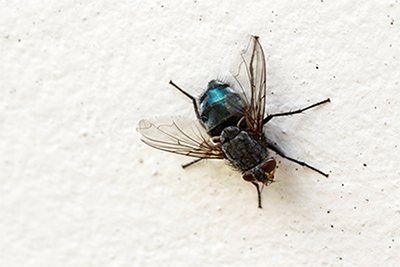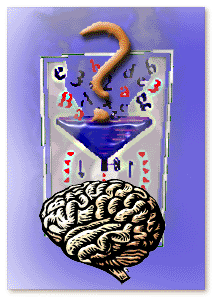 Jacques Derrida’s book, The Politics of Friendship, spends a swathe of papyrus exploring and questioning the work of Carl Schmitt’s The Concept of the Political. Schmitt claimed that, going all the way back to ancient Athens, there were two types of social conflict: the first, stasis, involved rigorous debate and argument between members of one natural nation and the second, polemos, was all out war against an external and incomprehensibly different Other (Derrida, 114).
Jacques Derrida’s book, The Politics of Friendship, spends a swathe of papyrus exploring and questioning the work of Carl Schmitt’s The Concept of the Political. Schmitt claimed that, going all the way back to ancient Athens, there were two types of social conflict: the first, stasis, involved rigorous debate and argument between members of one natural nation and the second, polemos, was all out war against an external and incomprehensibly different Other (Derrida, 114).
As Canadians and as AU students, we share in the foibles and falsehoods of others and that includes both other people and other nations; in theory the whole world is our virtual domain. However, to hold our egos together, we require a certain pedestalization of self even if that means refraining from admitting our less desirable traits. We say that, in truth, we are good people, likable and honest. “Despite the value that must be accorded to the ‘true’ and to the ‘veracious’, it might even be possible that the very thing constitutive of the ‘value of good and honoured things-and virtue is one of them-is related, knotted, entangled – perhaps (vielleicht) identical in its essence to its antithesis, to wicked things. ‘Perhaps!’” (Derrida, 30). We see what we want to see in the mirror and no mirror tells a more varnished truth than that into which a nation gazes on its birthday.
As AU students, on Canada Day we occupied two unique positions: firstly as inhabitants of a country whose neighbour is ten times larger and with a revolutionary history outlined in vivid and assertive pronouncements. Secondly, we identify as students in a university that, for most of us, doesn’t exist as a physical campus, classroom, or playground; our incarnation as students varies vastly from our brethren in traditional educational settings. Derrida preaches humility in the face of our desire to feel universally superior in our traits; he says that a “surplus of freedom” leads us to believe ourselves almost invincible at the moral level; we rest on our laurels of democracy and comfort (Derrida, 36). And hey, when you’re the only voice in your private classroom or public CBC who’s going to question your assertions? We often feel that perhaps our gentle Canadian hand in the world is the way forward for all nations but “the friends of the ‘perhaps’ are the friends of truth. But the friends of truth are not, by definition, in the truth; they are not installed there as in the padlocked security of a dogma and the stable reliability of an opinion” (Derrida, 43). We have to question the unquestionable, even if that means casting a shadow over our own illustriousness.
Canada, I am in You…and AU Too
National definitions depend upon the assumption that they contain more than a kernel of truth. We believe we are united in the True North because we want to believe we are. And because it feels right; we all share this wondrous land and feel a certain mutual harmony in our hearts. Yet, this belief in our shared nobility belies the political bounds from which lofty assertions flow. Derrida notes that self-portrayal as good and just often involves reducing the Other to a lesser, that is overly politicized, status. It’s easy to feel fair and balanced while touting one’s greatness compared to a neighbour, and we all know who that neighbour is. Often “one wants to disqualify or denounce him as political in order to portray oneself as ‘apolitical’ (in the sense of purely objective” (Derrida, 118) To be fair we have to admit that accounts of our self as mature, balanced, and tolerant are themselves political gestures and therefore susceptible to blind spots and inaccuracies.
So where is the concrete Canada other than in our hearts? Isn’t resorting to sentiments rather than facts akin to embracing fake news? Eek! A flag may be only a shred of textile, but it provides sustenance for shared affective collectivity. We feel as one and that makes us one despite, and indeed because of, our differences. This is the nature of Schmitt’s aforementioned concept of stasis; we are united even in our opposition to one another within our society. And we’re united, perhaps, in part because of our democratic institutions, but more deeply in our sense of sister and brotherhood with one another. It’s hard to put a finger on that affinity, despite DNA testing. Neighbours quibble and throw branches over each others’ fence in mutual horticultural distaste but true enemies, which we as fellow Canadians to each other are not, would seek to obliterate their neighbours’ homes or have them evicted from the community. And, even more to the point, in illustration of the extreme adversaries characterizes by polemos, true enemies desire the destruction of their neighbours because they admit to seeing no part of themselves when facing the Other. Mutual disdain leads to asinine violence, surely a very un-Canadian trait. We, in some sense, are kindred spirits with our neighbours at the level of stasis rather than polemos; yet, this fact can not preclude conflict. At best, it can brush conflict over with suburban shrubs and backyard fences.
Concrete Truths that Melt the Patriotic Heart
Derrida intones that the concrete is tangible only at the level of the intangible. And this, like life and love itself, is what makes human bonds so special. We’re not just beavers sharing a dam, we’re humans sharing a country. Derrida notes
“the unending insistence here on what would be the opposite of the spectral – the concrete; the compulsive and obsessional recurrence of the word ‘concrete’ as the correlate of ‘polemical’ -does indeed provide food for thought. What thought? Perhaps that the concrete finally remains, in its purity, out of reach, inaccessible, unbreachable, indefinitely deferred, thereby inconceivable to the concept; consequently as spectral as the ghost on the periphery, which one opposes to it and which could never be set apart” (Derrida, 117).
The concrete truth of Canadian tolerance is the lack of desire to enforce ourselves on others; at AU we feel this truth whenever we must quietly accept being misunderstood for why we are studying or for what we have learned. Yet to specifically define this openness risks narrowing the margins of its inclusive nature
To know ourselves as Canadian citizens or as Athabasca students is to know the ghost next door, the unknowable nature of what we are to become as we proceed down the trails of our own development. Perhaps the most Canadian thing of all is therefore to see ourselves as human beings in progress amidst the beauty of non-human nature; we aren’t locked into a stern past nor desperate for a different future. In the interaction of school and life we at AU share this very Canadian sense of hope and appreciation, dreams and reality.
Belongings and Longings, AU-thenticity’s Many Faces
The nature of identification as members of a group, tribe or nation is often assumed more than clarified. If you’ve ever seen a Father bounce a ball innocently off of a toddler son’s torso and exclaim ‘there’s my little man’ you know how culturally constituted social roles can be. So too with countries. Nations all over the world constitute “a people in-so-far as it can identify itself” (Derrida, 113). Here in Canada, as at AU, our history is short and ambiguous. Our concrete traditions often underline a sense that we do things in a kinder way than our neighbours; this core Canadian belief is not without contradiction, however. A New Zealand family I once knew noted the unique tradition of stopping an entire hockey game to allow a fight to continue. Their sport of Rugby has no shortage of controlled violence but never a stoppage for fisticuffs. So much for Canada as a polite culture of law and order! Derrida states that countries contain a “a national naturalness which has never been what it was said to be” (Derrida, 105). Clearly Canada is not only a nation of peacemakers but also of fighters. Yet we like to think that our gun-toting neighbours to the South have the violent hearts, not Timbit-nibbling us!
To give a fair self-assessment of a nation is thus to find “a justice which begins by breaking with their naturalness or their homogeneity, with their alleged place of origin” (Derrida 105). In this vein we Canadians are a complex people who contain as much or more of our American neighbours within our hearts and our borders. AU is a prism of many life experiences and paths of academic procession; we all begin as students and grow into who we are as human learners. There’s little sense in adopting a pretence of superiority. Likewise, for all our bluster about the values of AU education there are many common aspects between distance and traditional pedagogy. Not least of these commonalities are the egos of tutors, these folks are human after all, and the realities of groupthink. Professors can be arrogant and student forums can descend into negativity at Athabasca just as quickly as at any brick and mortar poli-sci classroom, it’s true. Sometimes vitriol follows learning like an offshoot of the passion of growth.
We’re All Special Countries, but Canada is a Species of Nation in a Class of It’s Own?
Perhaps every country feels unique, and even a bit superior, but that’s the point: each species in nature struggles to fulfil itself in its own way. Even if one nation appears to us as king of the jungle, that’s only from our personal point of view as a country. Ants fear anteaters more than lions, for instance. In the end, being Canadian can mean many things, but it doesn’t necessarily mean we’re better than our planetary neighbours. Our relationship with others is what seems to define us even as this very difference occurs within us; as we know ourselves in both our desirable and unsavoury aspects.
Nietzsche concludes that this sense of superiority functions because we believe that what we believe and feel is natural rather than the product of historical and sociological change. “Your pride wants to prescribe your morality, your ideal, to nature, yes to nature itself, and incorporate them in it; you demand that nature should be nature ‘according to the Stoa’ and would like to make all existence exist only after your own image – as a tremendous eternal glorification and universalization of Stoicism” (Nietzsche, 39). To be stoic, after all, is to believe in one’s own version of common sense. Yet change for the better, or more tolerant, is only an alteration of our core beliefs away.
A final rejoinder from Derrida reminds us to be humble and realize that we often see in others what is within us at some level already: “The enemy is oneself. I myself am my own enemy.” (Derrida, 163). On Canada Day we come together as citizens of an imperfect nation we call home but also as AU students, whose education is unique and even incommensurable to our brick and mortar brethren. If we feel enmity towards some aspects of another country, or annoyance by college student stereotypes, then we’d be wise to search ourselves, and our immediate neighbours, for those very same traits. And maybe, just maybe, have a look at the bumper stickers on our highways and in our hometowns. It’s an election year after all.


